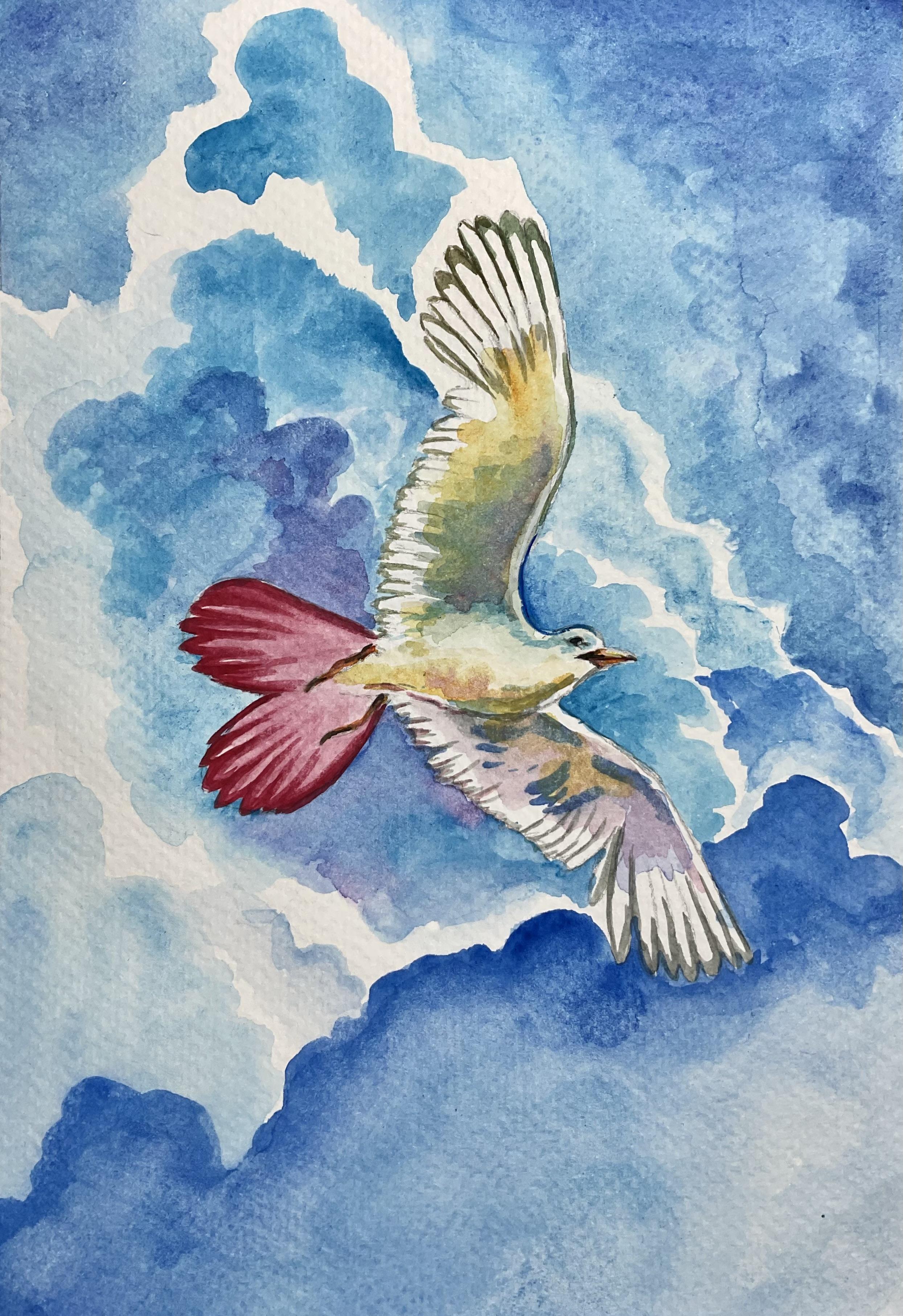Irony Of Marriage

IMAGE OF THE WEEK
We are grateful to Rupali Bhuva for offering this hand-made painting for this reading.

Largely, marriage has been used by those societies, religions, and families as a mini-prison, as kind of a contractual arrangement that says: "Everything will be, now and forevermore, the way it is in just this moment." [...] And so the very thing which should unlimit people and release the spirit within them, works against that and limits people and closes that spirit down.
That's the irony of marriage as we've created it. We say, "I do," and from the moment we say, "I do," we can't do the things that we would really love to do in life, in largest measure. Now, very few people would admit this in the first throes of romance and in the first moments after their wedding. They would only come to these conclusions three, or five, or--what's the famous phrase, the seven-year itch--seven years later, when they suddenly realize that, in fact, their experience of themselves in the world at large has been reduced, and not enlarged, by the institution of marriage.
That's not true, of course, in all marriages, naturally. But it's true in enough of them -- I'm going to say, in the majority of them. And that is why we have such a high divorce rate, because it isn't so much that people have gotten tired of each other, not nearly so often as they've gotten tired of the restrictions and the limitations that marriage seems to have imposed upon them. The human heart knows when it's being asked to be less.
Now love, on the other hand, is all about freedom. The very definition of love is freedom itself. Love is that which is free and knows no limitation, restriction, or condition of any kind. And so I would think that what we have done here is that we have created an artificial construction around that which is least artificial. Love is the most authentic experience within the framework of the human adventure. And yet in the midst of this grand authenticity, we have created these artificial constrictions. And that makes it very difficult for people to stay in love.
And so what we have to do is reconstruct marriage, if we're going to have marriage at all, in a way that says: "I do not limit you. There is no condition that makes it okay for us to remain together. I do not have any desire to cause you to be less in your expression of yourself, in any way. Indeed, what this marriage is intended to do, this new form of marriage, is to fuel the engine of your experience--the experience of who you really are and who you choose to be."
And one last thing that the New Marriage does: it says, "I recognize that even you, yourself, will change. Your ideas will change, your tastes will change, your desires will change. Your whole understanding of Who You Are had better change, because if it doesn't change, you've become a very static personality over a great many years, and nothing would displease me more. And I recognize that the process of evolution will produce changes in you."
This new form of marriage not only allows for such changes, but it encourages them.
Neale Donald Walsh is the author of 39 books. Excerpt above from here.
SEED QUESTIONS FOR REFLECTION: How do you relate to the notion that love is all about freedom? Can you share a personal story of a time love inspired you to remove restrictions on someone? What helps you create a relationship with someone that fuels the engine of their experience?